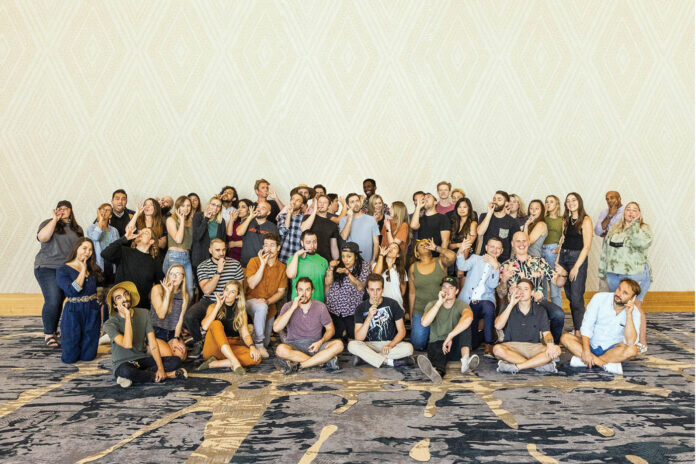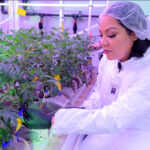When the pandemic hit in early 2020, Flowhub made the decision to go fully remote to protect the well-being of our employees. Being a remote company has advantages: work/life harmony, flexibility, and ability to work from anywhere, to name a few. Of course, many companies in the same situation soon recognized one of the greatest drawbacks to the “new normal” was the lack of in-person interaction. Whether you’re introverted or extroverted, all of us are social creatures who are hardwired to connect with others.
In situations where some or all employees work remotely, team-building matters more than ever.
To address this issue, we decided to host annual company-wide summits for vaccinated employees, thereby providing opportunities for departments to meet in person more regularly. Our inaugural summit took place in September. In order to help other remote companies cultivate authentic connections between employees, I want to share four important lessons we learned from the experience.
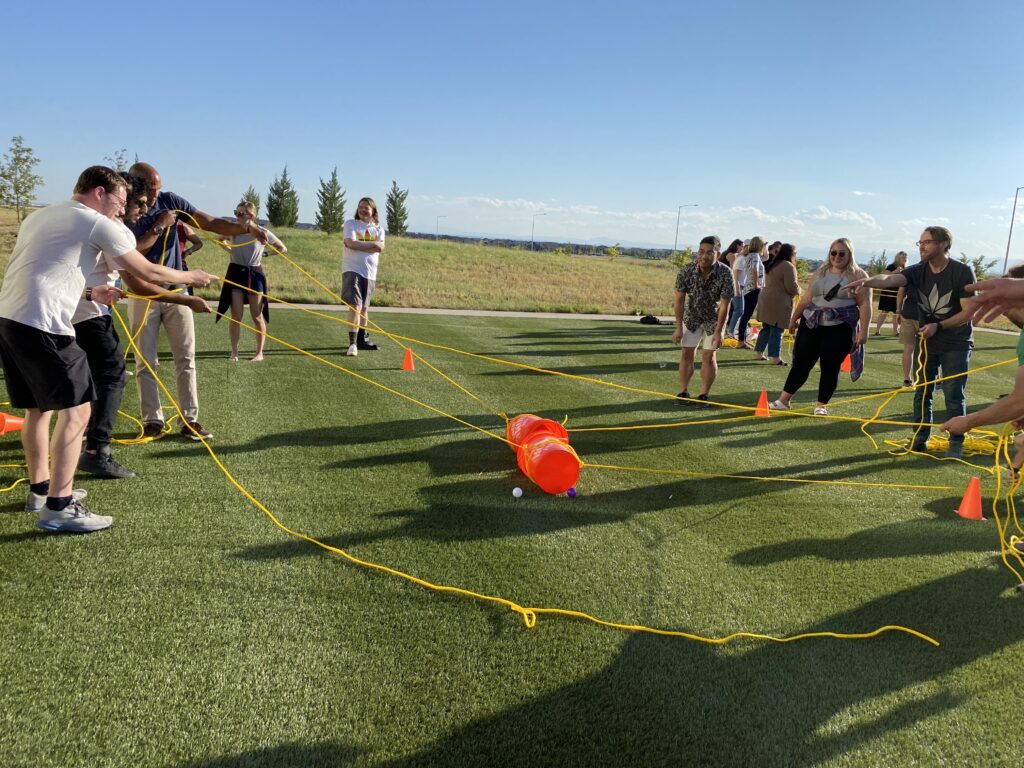
Team-building isn’t about business
When bringing employees together, it’s important to set expectations: The event is not all about work. The only face-to-face intraoffice interaction most remote employees get is video conferences where everyone is focused on the job, not socializing. Instead, make your summit a time for employees to hang out, build relationships with people outside their departments, and better understand what others are doing at the company.
For example, our summit took place at a resort that has mini golf, a pool, a lazy river, and a basketball court. A diverse selection of communal and approachable activities encouraged employees to participate at their own comfort levels and get to know one another.
Carving out space for both structured and unstructured quality time is imperative for the mental and professional development of remote workers. Leaving room for spontaneous time together means when we go back to work, we see our colleagues not just as faces on a screen or names in long email threads, but as fully fleshed-out human beings with whom we have formed genuine bonds. Having positive relationships in the workplace boosts morale, improves creativity and collaboration, and helps remote employees feel a sense of belonging.
Create an inclusive, comfortable environment
The success of a company summit starts well before the event. First of all, companies must have a clear-cut vaccination policy in place. This sets health and safety expectations early on and shows the wider team the company is being careful about mitigating unnecessary risks.
When choosing a location, do your due diligence. Ask the representative from the resort or hotel about the establishment’s COVID-19 protocols. Make sure there are plenty of outdoor spaces and the indoor spaces are well-ventilated. Let employees know about the venue’s safety protocols ahead of time so they feel comfortable attending.
Although more than 90 percent of our team is vaccinated, only about 60 percent of them attended our September summit. To help our employees who weren’t able to be there in person, we live-streamed the event and recorded the all-hands meetings so those who were absent could be part of the action.
In order to break the ice immediately, we made a point of getting everyone involved in activities right off the bat. On the first day, employees met at the venue for a happy hour before a quick kickoff speech and then a team-building game, so everyone had a chance to meet and interact.
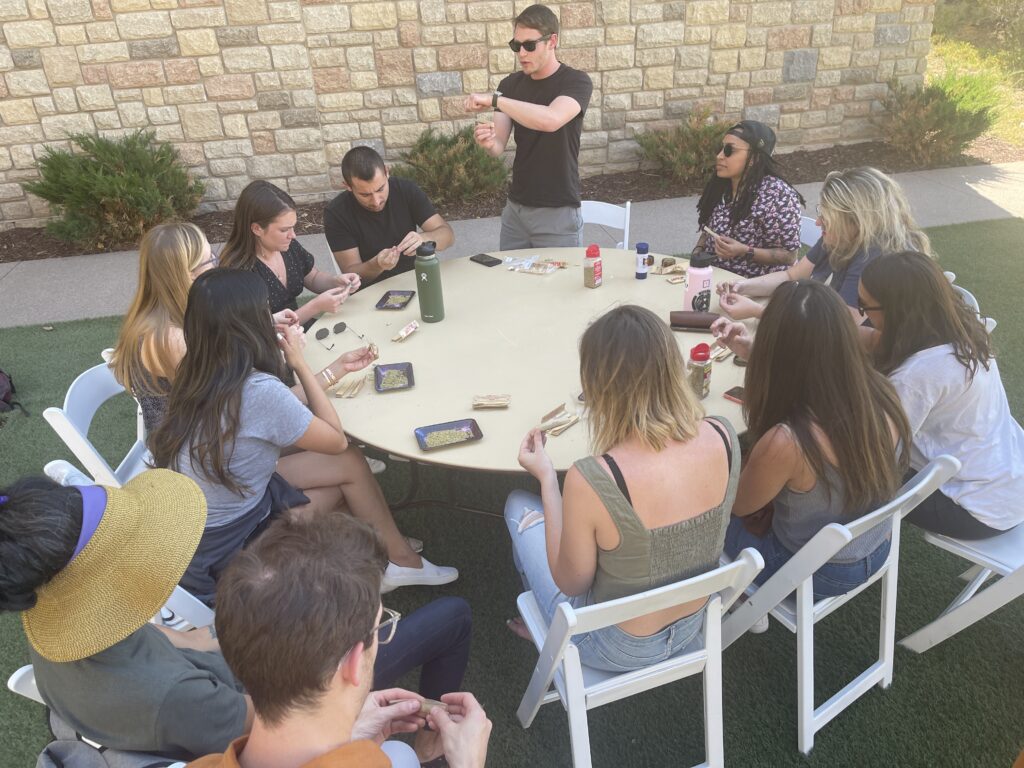
Plan a participant-driven agenda
When planning a team-building event, it’s important to include your employees. Executives making guesses about what they think employees want probably won’t produce a successful outing. The key to planning any transformative gathering is ensuring participation. Make sure everyone is invited to work, play, and contribute to making the event fun and engaging. If attendees help decide the activities, they’ll be more invested in the summit’s success.
Although we assigned key roles and responsibilities, such as an owner for all logistics and an owner for the agenda, planning the summit was a team effort. Our breakout sessions were led by a diverse group of individual contributors and cultural leaders at the company to create a “flat” experience free of hierarchy. We organized sessions like a joint-rolling workshop, birth chart readings, a game show, partner jeopardy, and a “protect the bowl” egg-drop challenge. To close the summit, we hosted a silent disco where everyone danced to music spun by DJs who were also employees.
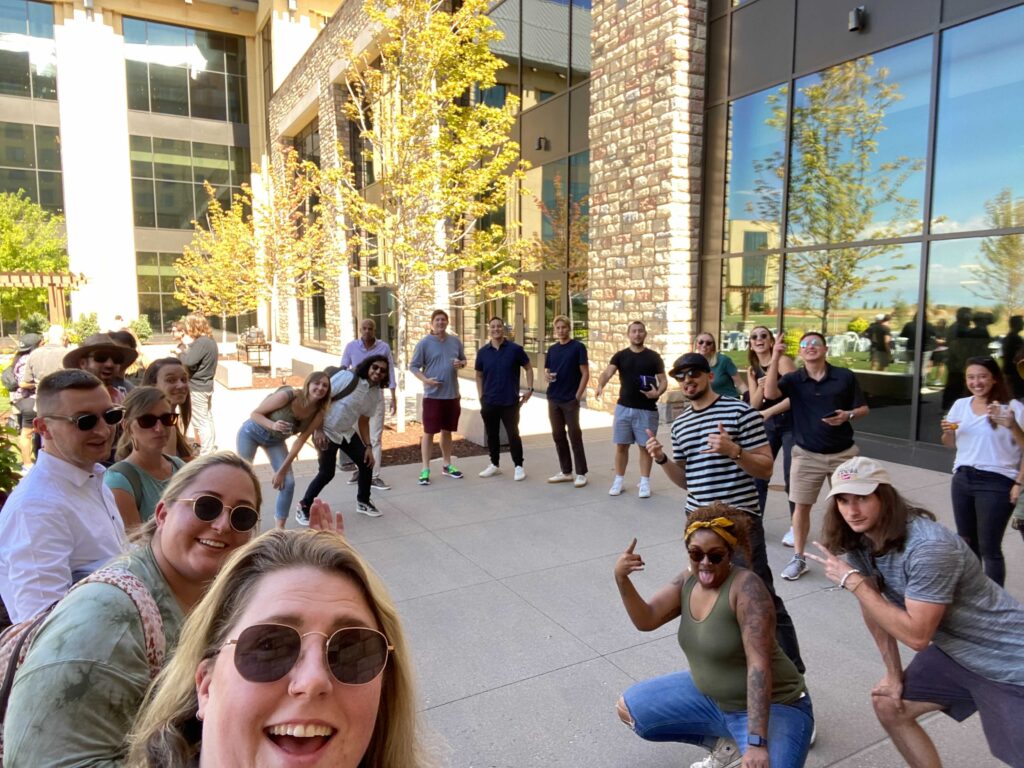
Always listen to your team
With remote work becoming the norm, companies need to listen to their employees now more than ever. We’ve received a lot of positive feedback from employees who attended our summit, and we will factor in all their advice when planning the next one. Every company right now should be questioning how best to serve their employees—remote or otherwise. Employees are departing in droves from companies where they don’t feel valued or are burned out, and companies that go out of their way to show their employees they care will be able to attract and retain talent.
We believe remote work is here to stay; it just makes sense for providers of digital services. We will continue responsibly hosting summits for our remote employees to connect and have fun, and we encourage other remote companies to do the same.
If you’re on the fence about bringing your team together in person, I hope these tips inspire you to make it happen safely and successfully. Best of luck!

Kyle Sherman is founder and CEO of Flowhub, a dispensary business-management and point-of-sale platform serving more than 1,000 retailers across North America. Named a Top 100 Cannabis Leader by Entrepreneur, Sherman led Flowhub through $50 million in venture capital raises. He was an associate producer for the Netflix documentary Weed the People.







